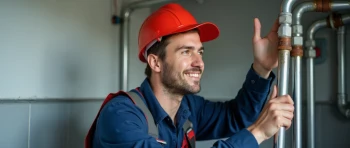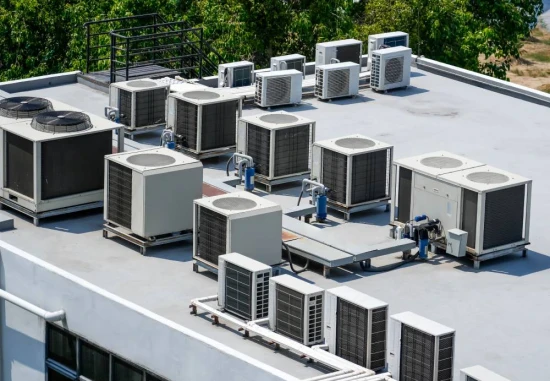When a pipe bursts at 2 AM or your water heater suddenly fails, the last thing you want is sticker shock from your plumber's bill. Understanding plumbing costs before an emergency happens can help you budget appropriately and make informed decisions about repairs and maintenance.
Quick Answer: Average Plumber Costs in 2025
- Hourly Rate: $75-$150 per hour
- Service Call/Minimum Fee: $50-$200
- Emergency Services: $150-$350 per hour
- Typical Job Costs:
- Unclogging a drain: $100-$275
- Fixing a water heater: $150-$700
- Repairing a leaky pipe: $150-$850
- Installing a new toilet: $225-$550
- Replacing a water heater: $800-$3,000
Note: Prices vary based on location, job complexity, and other factors discussed below.
Factors That Affect Plumber Pricing
1. Geographic Location
Plumbing services in urban areas typically cost 25-35% more than in rural locations. For example:
- New York City average hourly rate: $95-$175
- Rural Midwest average hourly rate: $65-$130
This difference stems from higher overhead costs, increased competition, and varying regional labor rates.
2. Licensing and Experience Level
The credentials of your plumber significantly impact costs:
- Apprentice Plumber: $45-$90 per hour
- Journeyman Plumber: $70-$120 per hour
- Master Plumber: $100-$175 per hour
Master plumbers command higher rates due to their extensive experience and ability to handle complex plumbing systems.
3. Service Type and Timing
When you need service affects what you'll pay:
- Standard Service Hours: Regular weekday rates
- After-Hours Service: 1.5x standard rates
- Weekend Service: 1.5-2x standard rates
- Holiday Service: 2-3x standard rates
4. Job Complexity and Materials
More complicated jobs require additional time, specialized tools, and quality materials, all of which add to the final cost.
Common Plumbing Services and Their Costs
Drain Cleaning
| Service | Average Cost | Cost Factors |
|---|---|---|
| Simple drain clog | $100-$225 | Location of clog, accessibility |
| Main sewer line clog | $300-$800 | Depth, access points, severity |
| Hydro jetting | $350-$750 | Pipe condition, length of cleaning |
Leak Repairs
| Service | Average Cost | Cost Factors |
|---|---|---|
| Faucet leak | $125-$350 | Faucet type, replacement parts needed |
| Pipe leak (accessible) | $150-$400 | Pipe material, extent of damage |
| Pipe leak (in wall/floor) | $400-$1,500+ | Location, required demolition |
| Slab leak repair | $1,000-$4,500 | Detection method, access required |
Fixture Installation or Replacement
| Service | Average Cost | Cost Factors |
|---|---|---|
| Toilet installation | $225-$550 | Toilet quality, floor condition |
| Faucet installation | $150-$350 | Faucet type, sink condition |
| Sink installation | $200-$525 | Sink type, counter modifications |
| Shower/tub installation | $850-$2,500 | Type, existing plumbing, tile work |
Water Heater Services
| Service | Average Cost | Cost Factors |
|---|---|---|
| Repair | $150-$700 | Issue complexity, parts required |
| Replacement (tank) | $800-$1,800 | Capacity, energy efficiency |
| Replacement (tankless) | $1,200-$3,500 | BTU output, installation complexity |
Hourly vs. Flat-Rate Pricing: What's the Difference?
Hourly Pricing
Plumbers charging hourly rates bill for the exact time spent on your job plus materials. This can be advantageous for simple jobs but risky for complex ones where issues might arise.
Flat-Rate Pricing
Many plumbers now offer flat-rate pricing where they quote a single price for the entire job regardless of how long it takes. This provides certainty but may include a premium for the plumber assuming risk.
Pro tip: Always ask for a clear explanation of pricing structure before work begins.
Emergency Plumbing Costs Explained
When disaster strikes outside normal business hours, expect to pay a premium:
- Emergency Call-Out Fee: $100-$300
- Emergency Hourly Rate: $150-$350
While costly, emergency services can prevent extensive water damage that would be far more expensive to repair.
How to Save Money on Plumbing Costs
1. Regular Maintenance
Preventative maintenance catches small issues before they become expensive emergencies:
- Annual plumbing inspection: $150-$300
- Potential savings from prevented emergency: $500-$3,000+
2. Compare Multiple Quotes
For non-emergency work, get 3-5 quotes from different plumbers. This typically saves 10-30% on project costs.
3. Ask About Discounts
Many plumbers offer discounts for:
- First-time customers
- Seniors
- Military/veterans
- Bundling multiple services
4. Supply Your Own Fixtures
If you're comfortable selecting fixtures yourself, you can often save 15-20% by providing your own toilet, faucet, or sink rather than having the plumber supply it.
DIY vs. Professional Plumbing: When to Call a Pro
Safe for DIY
- Unclogging simple sink drains
- Replacing faucet washers
- Installing a new showerhead
- Fixing running toilets
Call a Professional
- Gas line issues (ALWAYS)
- Main sewer line problems
- Hidden leaks in walls or foundation
- Water heater installation/repair
- Pipe replacements
Remember: DIY gone wrong often costs more to fix than hiring a professional initially.
Questions to Ask Before Hiring a Plumber
- Are you licensed and insured?
- Do you charge by the hour or offer flat-rate pricing?
- Is there a service call fee even if work isn't performed?
- Do you offer written estimates before starting work?
- Do you guarantee your work? For how long?
- Will you be performing the work or sending another technician?
- Can you provide references from similar jobs?
Red Flags When Hiring Plumbers
Beware of plumbers who:
- Cannot provide a license number
- Only accept cash
- Pressure you into immediate decisions
- Provide quotes significantly lower than others
- Don't offer written estimates or contracts
- Have no online presence or reviews
The Bottom Line: Budgeting for Plumbing Services
For homeowners, setting aside $500-$1,000 annually for potential plumbing issues is advisable. This helps ensure you're financially prepared when problems arise.
For major plumbing renovations or system replacements, expect to budget:
- Small bathroom remodel: $2,500-$5,000 for plumbing
- Kitchen plumbing upgrade: $2,000-$4,500
- Whole-house repiping: $4,000-$15,000
Conclusion
While plumbing services aren't inexpensive, understanding the factors that influence costs helps you make informed decisions. Quality plumbing work protects your home's value and prevents costly water damage. By researching prices, maintaining your system, and hiring licensed professionals, you can manage plumbing expenses effectively while ensuring the job is done right.
Remember that the cheapest option rarely delivers the best value. Instead, focus on finding a reliable, skilled plumber who stands behind their work and charges fair prices for quality service.
FAQs About Plumber Costs
Q: Do plumbers charge for estimates? A: Many plumbers offer free estimates for standard jobs, but some charge $50-$150 for complex projects requiring detailed assessment. This fee is often credited toward the work if you hire them.
Q: How much should I expect to pay for a plumbing emergency on a holiday? A: Holiday emergency plumbing services typically range from $250-$500 per hour depending on your location and the severity of the problem.
Q: Is it cheaper to hire an independent plumber or a plumbing company? A: Independent plumbers typically charge 10-30% less than large companies, but may have limited availability and fewer resources for complex jobs.
Q: Should I tip my plumber? A: Unlike restaurant service, tipping is not expected in the plumbing industry. However, positive online reviews and referrals are always appreciated.
Q: How can I verify if a plumber's price is fair? A: Compare quotes from multiple plumbers, check online pricing guides specific to your region, and ask for a breakdown of labor versus materials costs.






